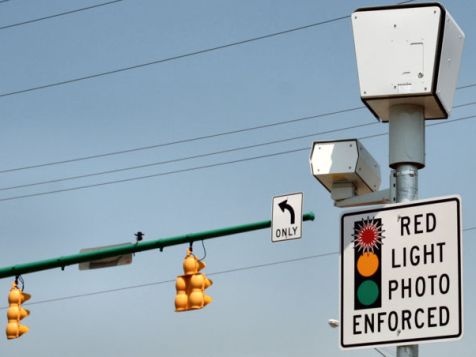Red light cameras get red light in California

A recent appellate court decision in Southern California delivered a huge blow to proponents of red light cameras. For years both sides have argued their points in the Capitol, debating whether or not the cameras, used to issue traffic citations, make cities and counties safer. Opponents have also questioned the legality of local governments writing tickets based solely on the photographic evidence provided by private firms who monitor the traffic enforcement systems. This latter question has now been answered in the form of a published legal decision.
Two years ago, critics convinced the Legislature to approve a bill that would have reduced hefty fines for rolling stops while making right-hand turns at monitored intersections. Staunch opposition from lobbyists for local governments carried the day, however, as then-Gov. Arnold Schwarzenegger vetoed the measure saying that lower fines sent the wrong message to would-be violators.
Now, the 2nd District Court of Appeal has reversed (essentially) the Governator's nullification by adding to a growing body of case law that invalidates evidence submitted to traffic courts by anyone other than a public employee who is a “custodian of record”. In other words, and in the context of this case, because law enforcement officer Mike Butkus did not actually witness Annette Borzakian run a red light, and instead relied on photographs and analysis provided by a private third-party who maintains and monitors the cameras, the $425 ticket he issued in the matter was based on hearsay and declared to be inadmissible.
The same conclusion was reached by courts in Kern and Orange Counties in Dec. of 2009 and May of 2010 respectively. Superior Court judges in those jurisdictions ruled that tickets issued through RedFlex Traffic System are to be thrown out based on insufficient evidence and the inability of the accused to confront their accuser. Redflex, an Arizona-based red light camera company, is the same firm whose employees caught Borzakian's alleged traffic infraction on tape.
In the Orange County case, presiding Judge Gregg Prickett clarified his decision by saying:
“No one with personal knowledge testified about how often the system is maintained. No one with personal knowledge testified about how often the date and time are verified or corrected.”
The latest appellate decision is a bitter pill for the town of Victorville, whose leadership contracted with RedFlex to maintain 10 cameras until 2015. Opting out of that contract is expected to cost the city hundreds of thousands of dollars. Both RedFlex and the town itself have been named as defendants in a class action lawsuit that alleges red light cameras in Victorville violate the law by allowing officers who did not actually witness an infraction to issue a ticket for it.
Councilwoman Angela Valles has carried the torch for Victorville residents who oppose the cameras.
“I have not seen any legal proof or study that can show that it is safer for our residents to have these cameras,” Valles told the Victorville Daily Press last January. “And I just don’t feel that the punishment fits the crime, especially in this economy today.”



